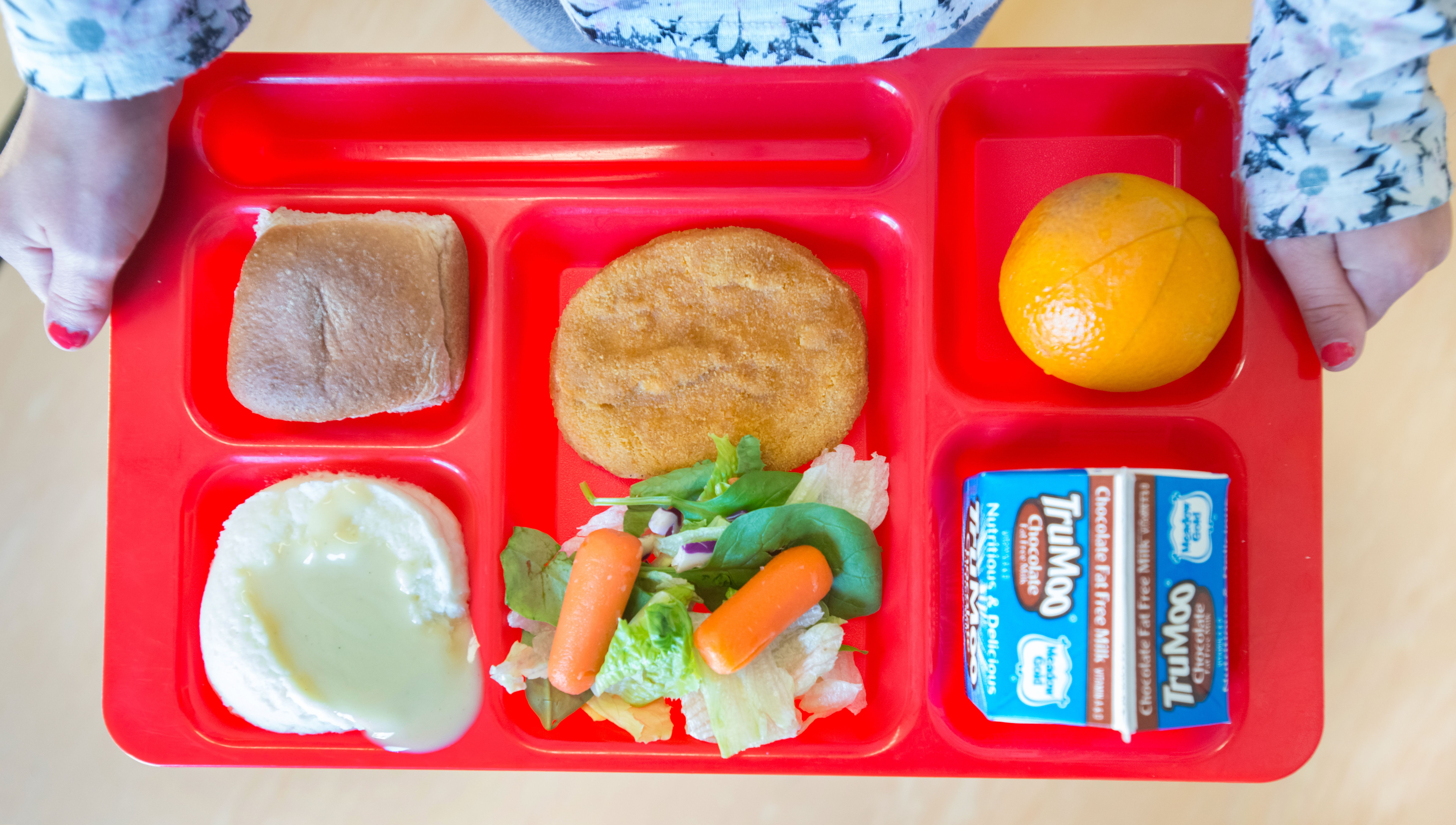
Families in need of food assistance often rely on free and reduced-cost school meals to meet their students’ nutritional needs, to keep their children focused in class and provide energy for their activities. Yet barriers persist in ensuring that all students who need free or reduced-cost meals at school get them. Studies have shown that requiring application paperwork from families and the social stigma associated with receiving free school meals can prevent qualifying families from participating altogether. One proposed solution that has been tested at high-need schools is providing universal free meals, where all students receive free breakfast and lunch regardless of income.

To understand the impacts universal free meal programs have in improving the health of students, Hannah Calvert, an assistant research professor in the College of Education, received a $55,869 pilot grant from the Mountain West Clinical & Transactional Research Infrastructure Network. Calvert will analyze data from the California Department of Education on health outcomes from universal free meal programs implemented in California schools. Peter Boedeker, an assistant professor of curriculum, instruction and foundational studies, will act as co-investigator. The project’s analysis aims to discern and report the health effects children experience when they have access to free meals at school. The grant will be housed in the Center for School and Community Partnerships in the College of Education.
“With so many schools across the county now providing free meals due to flexibilities made possible by the United States Department of Agriculture during the pandemic, we are seeing increased awareness of the importance of how these programs support students” said Lindsey Turner, director of the Center for School and Community Partnerships and collaborator on the grant. “This project will add important information about the specific health benefits of universal free meals programs, which will be valuable for policymakers and educators to know more about strategies for ensuring all students can thrive.”

According to Calvert, demonstrating the effectiveness of federally funded school meal programs is of immediate importance for the nation’s most at-risk children amidst federal and state budget cuts. Research has yet to suggest precise health outcomes in schools that have adopted universal free meal programs, but there is evidence that children who are food insecure and who participate in school meal programs have improved health outcomes, better dietary habits and report feeling better.
Using the results of the analysis, Calvert will be able to share evidence for what types of school meal price models might best serve Idaho students. This includes whether universal free meals could be implemented in Idaho’s high-need schools and if these programs would create a positive health impact for all students.
“With this grant I hope we can provide evidence that when we remove barriers to accessing school meals, more students eat nutritious meals and become healthier as a result,” she said. “Providing more positive evidence around universal free meals will help school staff in their decision making about this option, and potentially lead to schools getting more resources to provide free meals to students.”
–by Carrie Quinney